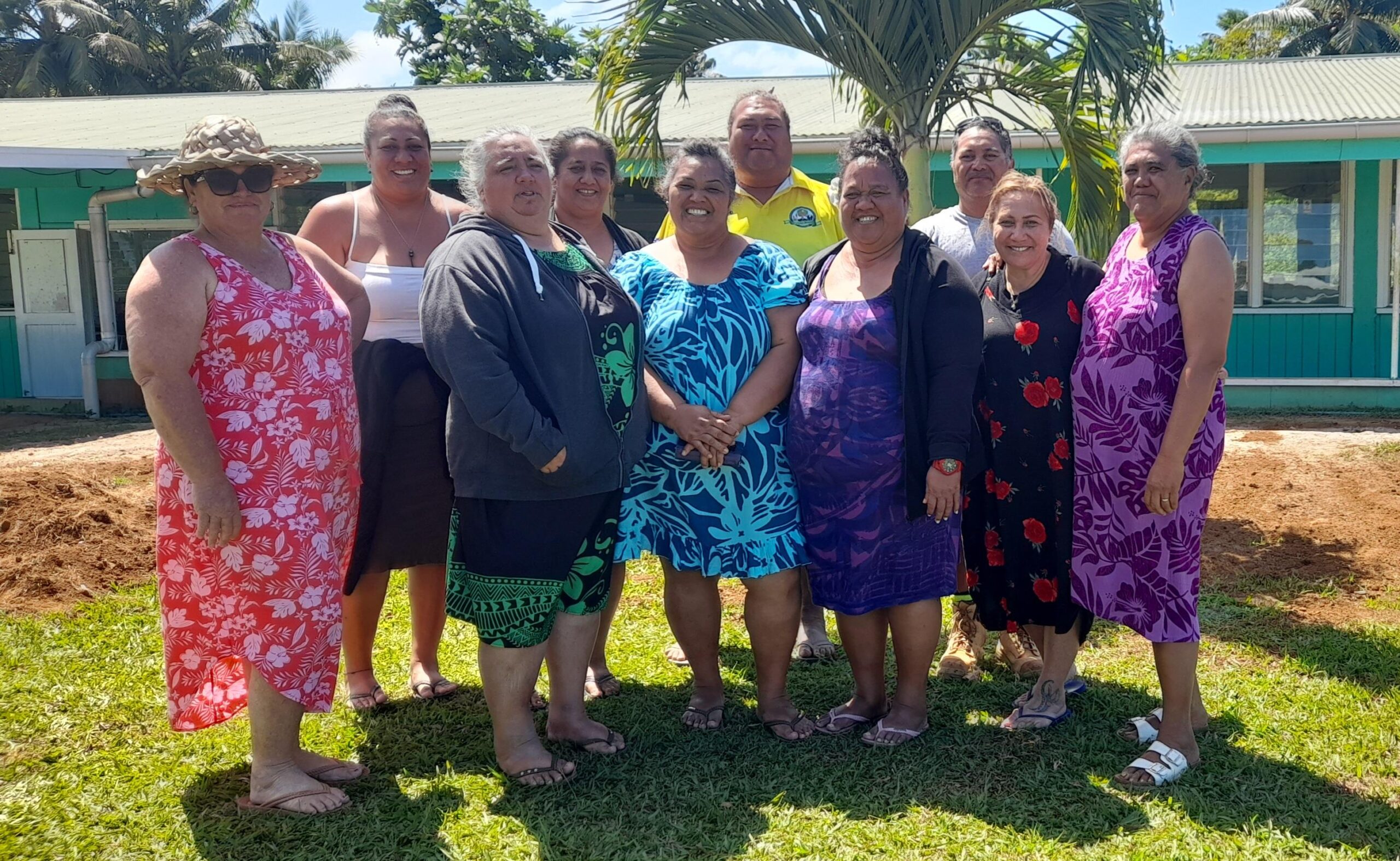Dyslexia assessments to help identify unique learning needs
Wednesday 6 September 2023 | Written by Melina Etches | Published in Health, National

Araura Primary School, Aitutaki teachers and principal Paepaerei Pauka Jnr and Cook Islands Dyslexia Society (CIDS) vice president Jean-Marie Francis. 23090115
Dyslexia is not an obvious disability and very few people in the Cook Islands know of it and how it affects a person.
To better understand people with dyslexia, first start by recognising that dyslexia does not affect intelligence.
The Cook Islands Dyslexia Society Inc. (CIDSI), states that those with dyslexia are right brain learners and are often more creative and better at problem solving.
The organisation acts as a “a bridge” between teachers, parents, and the education system.
In the Pa Enua, the CIDSI are highlighting dyslexia and conducting a comprehensive approach to identifying and supporting students with dyslexia assessments, starting with four schools in Aitutaki.
This proactive approach recognises the unique learning needs of individuals with dyslexia.
CIDSI have assessors who can assess and identify students with dyslexic markers.
Vice President of CIDSI, Jean-Marie Francis kicked off the two week Pa Enua Dyslexia Awareness, Assessment & Advocate Tutors Programme at Vaitau Primary, Aitutaki.
“It’s a rigorous programme,” said Francis.
“We had an excellent first day with an information session with Principal Eve (Vaitau Primary) and her staff, then an interactive reading session with Grades 3 & 4.
“This was followed by identifying staff who wish to take part in the 2024 workshop for training in one-on-one tutoring for dyslexic students.
“It was an amazing day, and the staff and children were so welcoming and very keen to participate in the programme.”
Francis said the focus is to assess the children, but, more importantly to identify teachers, passionate parents or anyone who is passionate about children and helping them learn, and hopefully bring them on board for training next year.
A Rapid or Dyslexic Screener is the initial 30-45 minute online test that shows if a child has dyslexia or not.
An analysis is done on the information from the online test to see what level of dyslexia a child may have.
“Then we can identify how much help a child will need with tutoring, writing, spelling, or speech.”
Meetings with the child’s parents or guardians are also carried out and a permission slip is required to be signed.
Workshops are also being held to teach people how to teach dyslexic children how to read.
“It also captures any child that needs remedial reading.
“Unfortunately many of the programmes that are in the schools are for children who need help with reading, but, it doesn’t actually help our dyslexic students.
“There is a specific way they need to be taught and they need to master “the code” and then they can decipher words.
“It’s a little different and they struggle with those programmes which isn’t anyone’s fault, it’s just what we have, so we’re pushing that boundary.
“We are really excited about rolling this programme out in the Pa Enua because it’s so important that we educate parents and staff about dyslexia, because a lot of people don’t know about it,” said Francis.
These assessments will also be rolled out in Mauke, Atiu, Mangaia and Mitiaro.
CISDI are on track with their 2022/2023 Strategic Plan, and the Dyslexia Awareness, Assessment & Advocate Tutors Programmes are key things to get children assessed, for the organisation to attain “an inclusive education plan that’s going to come down in the future which is why the advocate tutors are so important,” she said.
Making waves nicely, CIDSI have received funding from the Australian High Commission and UNESCO for the one-to-one tutoring programme that started at Apii Nikao this term.
Four private tutors have been engaged for these one-to-one lessons for students from across the island.
Thirty students who have dyslexic tendencies on Rarotonga are receiving one-to-one half hour tutoring lessons weekly at Apii Nikao for the rest of this term.
“It’s nowhere near enough, we have hundreds of kids in the Cook Islands that could do with that one-to-one support,” said Principal of Apii Nikao, Michael Mokai.
“We are just so thankful to UNESCO for providing that support, it’s not something that Education is able to provide us with, its outside of their scope.
“The only way we could this was through donors and we are hoping that will continue next term,” said Mokai.
The aim is long term, that every student in the Cook Islands who requires that one-to-one support will be able to receive it, Mokai said.
He is hopeful there will be funding set aside to start tutoring in the Pa Enua in Term 4.
Francis said the one-to-one programme is key while things getting put into place, “it is really important for students to get help they need now.”
The more students who are identified as having a learning difficulty through these first assessments, gives CIDSI more opportunity to access funds for further training and certification towards local assessors becoming fully qualified.
Supporting dyslexic students through free private tutoring is a key priority of the society. The assessment report provides the tutor the information to tailor the sessions to your child’s needs.
The society believes the best way forward is to become self-reliant by having “our very own assessors” in the Cook Islands.
Contact the Dyslexia society for more information on dyslexia and there is a form online to register your child for an assessment.
CIDSI would like to thank the UNRSCO Participation Programme, Australian Government, Inclusive Education Advisor, Ministry of Education, for their invaluable support.










































